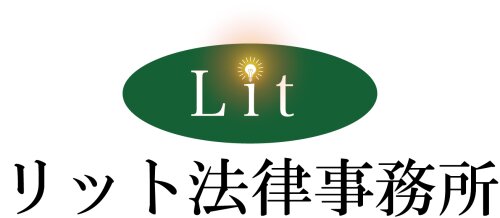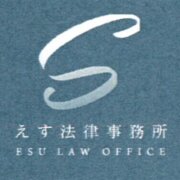Best Whistleblower & Qui Tam Lawyers in Japan
Share your needs with us, get contacted by law firms.
Free. Takes 2 min.
Or refine your search by selecting a city:
List of the best lawyers in Japan
About Whistleblower & Qui Tam Law in Japan
Whistleblower laws in Japan are designed to protect individuals who report misconduct or illegal activities within organizations. These laws aim to ensure that whistleblowers are not subjected to retaliation and that their disclosures are properly investigated. The concept of Qui Tam, which in many jurisdictions allows a whistleblower to file a lawsuit on behalf of the government and potentially receive a reward, is not as firmly established in Japan compared to countries like the United States. However, Japan has made strides in enhancing its whistleblower protection framework over the years.
Why You May Need a Lawyer
Several situations may arise where individuals seek legal advice in Whistleblower & Qui Tam matters:
- Facing retaliation after reporting illegal activities within a company.
- Need assistance in understanding the legal protections and rights as a whistleblower.
- Unclear about the procedures for filing a whistleblowing complaint with authorities.
- Concerns about potential legal liabilities or confidentiality breaches in whistleblowing.
- Exploring the possibility of compensation or rewards for reporting misconduct.
Engaging with a lawyer can help navigate complexities and ensure one's actions align with the law.
Local Laws Overview
The key legislation governing whistleblowing in Japan is the Whistleblower Protection Act. Initially enacted in 2004 and revised in 2020, this act provides protection to employees of private and public organizations by preventing employer retaliation for legitimate reports. Key aspects include:
- Protection Scope: Provides cover for employees who report illegal activities to internal or external authorities.
- Definition of Reportable Activities: Includes criminal conduct and violations of laws or regulations.
- Reporting Channels: Encourages the use of internal company reporting systems where possible, but also upholds rights to report to external bodies.
- Employee Protection: Employers are barred from dismissing or treating employees unfairly due to their whistleblowing activities.
- Anonymous Reporting: While anonymous reporting is possible, it may limit the extent of protection offered to the whistleblower.
Frequently Asked Questions
1. What qualifies as a whistleblower in Japan?
A whistleblower is someone who reports misconduct or illegal activities within their organization in good faith.
2. Are all whistleblowers protected under Japanese law?
Protection is generally provided to employees who report criminal or regulatory violations in good faith, according to the Whistleblower Protection Act.
3. How can I prove retaliation by my employer?
Documentation of adverse actions following the report and showing a connection between reporting and retaliation can help prove retaliation.
4. Can I report misconduct anonymously?
Yes, anonymous reporting is possible, but it may affect the level of legal protection you receive.
5. Is there a deadline for reporting wrongdoing?
While there is no specific deadline, timely reporting is encouraged to ensure prompt investigation and protection.
6. Will I receive compensation for whistleblowing?
The current framework in Japan does not guarantee financial incentives like in some other countries, but protection from retaliation is provided.
7. Do whistleblower protections apply to contractors?
Generally, the protections focus on employee whistleblowers, and contractors may have limited protections.
8. Can I seek legal recourse if my employer retaliates?
Yes, legal remedies are available, including filing claims for wrongful dismissal or unfair treatment.
9. What should I do if my report is ignored?
If an internal report is ignored, you may escalate the issue by reporting to relevant government authorities.
10. Are there any risks in whistleblowing?
Potential risks include professional repercussions, but legal protections aim to mitigate these consequences.
Additional Resources
For further assistance, consider reaching out to the following resources:
- Consumer Affairs Agency: Provides information and guides on whistleblower protections.
- Japan Federation of Bar Associations: Offers legal advice and support for whistleblowers.
- Ministry of Health, Labour and Welfare: Handles cases related to employment and labor issues.
- Non-governmental Organizations: Various NGOs offer support and advocacy for whistleblowers.
Next Steps
If you are considering blowing the whistle or have faced retaliation, here are several steps to consider:
- Evaluate the importance and authenticity of your information related to violations.
- Seek legal advice to understand your rights and protections under Japanese law.
- Consider using authorized or recommended reporting channels within your organization first.
- If necessary, report externally to relevant authorities for further investigation.
- Maintain a detailed record of all communications and events related to your case.
Consulting with a lawyer familiar with Japan's whistleblower laws can better prepare you to handle potential challenges and ensure your actions comply with legal requirements.
Lawzana helps you find the best lawyers and law firms in Japan through a curated and pre-screened list of qualified legal professionals. Our platform offers rankings and detailed profiles of attorneys and law firms, allowing you to compare based on practice areas, including Whistleblower & Qui Tam, experience, and client feedback.
Each profile includes a description of the firm's areas of practice, client reviews, team members and partners, year of establishment, spoken languages, office locations, contact information, social media presence, and any published articles or resources. Most firms on our platform speak English and are experienced in both local and international legal matters.
Get a quote from top-rated law firms in Japan — quickly, securely, and without unnecessary hassle.
Disclaimer:
The information provided on this page is for general informational purposes only and does not constitute legal advice. While we strive to ensure the accuracy and relevance of the content, legal information may change over time, and interpretations of the law can vary. You should always consult with a qualified legal professional for advice specific to your situation.
We disclaim all liability for actions taken or not taken based on the content of this page. If you believe any information is incorrect or outdated, please contact us, and we will review and update it where appropriate.
Browse whistleblower & qui tam law firms by city in Japan
Refine your search by selecting a city.















